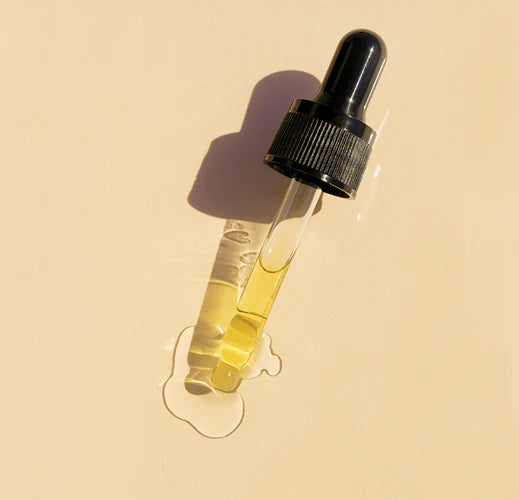Menopause significantly impacts the skin due to the decline of the hormone estrogen. On a biological level, estrogen controls several physiological processes in the skin, including sebum, collagen, elastin & hyaluronic acid production, skin hydration, wound healing and the regulation of melanocytes (cells responsible for pigment production). Therefore the drop in estrogen levels during this stage results in accelerated ageing, thinner, drier and more sensitive skin, prone to age spots.
The effects

How to support your skin through the menopause and after
The initial four years of the menopause is the most critical time to support your skin as this is when up to around 30% of our natural collagen is lost, with a further 2% decrease each year.
Discover our Top Tips
Tip 1 - Use a facial oil regularly, day/and or night to counteract the reduction in sebum production which weakens the barrier function causing TEWL and increased sensitivity.
Tip 2 - Add Ceramides to your routine for the same reason.
Tip 3 - Use hydrating actives. Our Isotonic Hydra-Serum is ideal as it not only supplies the skin with immediate hydration but is designed to stimulate the skin to produce more Hyaluronic Acid (HA production reduces during menopause) as well as prevent the natural breakdown of Hyaluronic Acid.
Tip 4 - Use actives that stimulate blood circulation which naturally declines causing less nutrients to the skin resulting in a pale complexion.
Tip 5 - Use actives that boost fibroblast production to support collagen and elastin production, such as growth factors and peptides.
Tip 6 - Use actives that are co-factors in collagen and elastin production, such as sulphur, Vitamin A, Vitamin C, Zinc, Copper and Amino Acids.
Top Nutrients to focus on
Amino Acids |
For Collagen: Glycine, Proline, Hydroxyproline, Lysine. For Elastin: Glycine, Valine, Proline, Alanin |
Vitamin C |
Cofactor for hydroxylation in collagen, supports elastin and hyaluronic acid production. |
Copper |
Cofactor for lysyl oxidase, essential for collagen and elastin cross-linking. |
Zinc |
Supports collagen re-modelling, enzyme activity for Hyaluronic Acid synthesis |
Vitamin A |
Regulates collagen production and supports cell differentiation. |
Sulphur |
For sulphur-containing amino acids, supports collagen cross-linking, keratin, glutathione production. Also anti-inflammatory. |
Manganese |
Cofactor for elastin synthesis enzymes |
Magnesium |
Cofactor for hyaluronan synthase enzymes in hyaluronic acid production. |
N-Acetyl Glucosamine |
Precursor in Hyaluronic Acid synthesis, forms its structural framework. |




